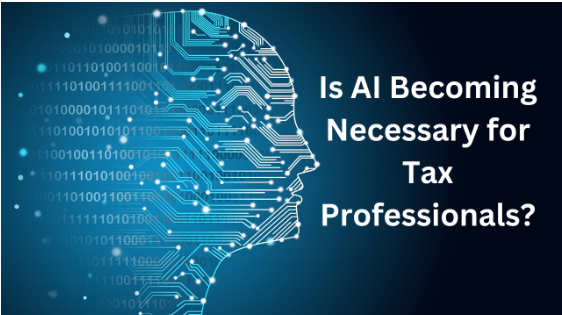The tax profession has become increasingly complex, with an extensive array of ever-evolving regulations and compliance requirements.
Navigating complex tax codes and bundles of tax books is now a difficult and daunting task for tax professionals, who must stay updated and adhere to stringent rules and guidelines. In this rapidly changing environment, AI in tax preparation is emerging as an indispensable tool to help tax professionals streamline their processes, enhance accuracy, and provide more comprehensive services to their clients.
The Growing Complexity of Tax Regulations
Historically, tax regulations have continuously evolved to address changing economic conditions, societal needs, and technological advancements. However, in recent years, the sheer volume and complexity of tax laws and regulations have skyrocketed, presenting significant challenges for tax professionals. Keeping up with the constant inflow of updates, interpretations, and nuances has become an arduous task, straining the resources and capabilities of even the most seasoned tax experts.
The Role of AI in Modern Tax Practice
As of today, AI already evolved and is continuously evolving in many industries and sectors, whether it is marketing, sales, customer services, business intelligence, and more. Now, It’s good to see that it has also started to evolve in the financial sector, specifically in accounting and taxation.
AI in tax preparation, helping tax professionals with tax research, tax filing, tax memo writing, and client tax document management. TaxGPT is also one the best AI tools for taxation, designed by tax professionals for tax professionals, tax firms, and financial advisors. It works as an AI tax assistant.
For every tax professional, it is very difficult to satisfy all of their clients, and if it is tax season, then it becomes more frustrating to answer all of their clients’ questions. Here, TaxGPT comes in as an AI tax advice tool for tax pros; as a tax professional, you just need to ask any query and question of your client to TaxGPT, and it can provide you with instant answers to all of your questions with credible sources. One thing to note here is that TaxGPT’s algorithm is specifically trained only on the tax data from credible sources, so it will always provide answers to your questions with authentic source references.
Benefits of AI in Tax
The integration of AI into tax practice offers numerous advantages, including:
- Increased Efficiency: AI-driven tax research tools can rapidly process and analyze vast amounts of data, expediting tax research, compliance, and planning processes.
- Better Decision Making: AI tax advice tools provide tax professionals with data-driven insights and recommendations, facilitating more informed and strategic decision-making for their clients.
- Cost Savings: Traditional tax research or manual tax research is one of the most time-consuming things for tax pros; by using AI-driven tax research tools, tax experts can save a huge amount of time from their tax research and can spend on other high-value tasks like client management and strategic planning for the business, can onboard more clients without spending extra overhead costs.
Addressing Concerns and Misconceptions
While the adoption of AI in tax practice offers significant benefits, it is essential to address common concerns and misconceptions surrounding this technology:
- Job Security: AI is not designed to replace tax professionals but rather to augment their expertise and capabilities. By offloading everyday tasks to AI, tax experts can focus on higher-value activities that require human judgment and critical thinking.
- Learning Curve: Every tool has its own learning curve, but TaxGPT is designed with a user-friendly interface and seamless integration capabilities, minimizing the learning curve for tax professionals.
- Data Privacy and Security: Reputable AI solution providers prioritize data privacy and security, but not all general AI tools. But taxation is something that requires robust security measures because as a tax professional, you are gonna use AI for your client’s financial information. That is why it is important to always choose the AI tax tool that has the best security measures, just like TaxGPT, which is never trained on the data you provide. There will be a wall between the internet and your data, and all data will be stored in the United States within third-party hosted AICPA SOC levels 1, 2, and 3 compliant servers. Additional compliance measures include FISMA, DIACAP, and FedRAMP. TaxGPT, as an additional standalone security compliance measure, is currently working through the SOC 2 Type 2 audit.
Conclusion
The necessity of AI for modern tax professionals is undeniable. As tax regulations continue to evolve and become more complex, AI tax assistants like TaxGPT are playing an important role in helping tax experts navigate the challenging landscape. By embracing AI, tax professionals can enhance their efficiency, accuracy, and decision-making capabilities, ultimately providing better services to their clients while staying ahead of the curve.

































